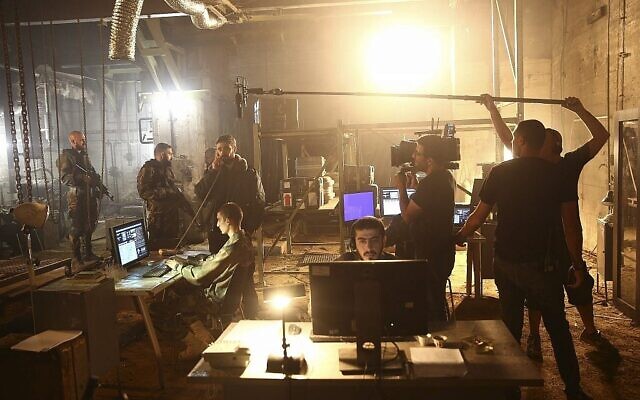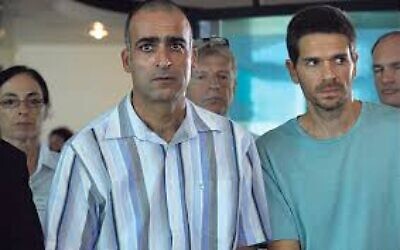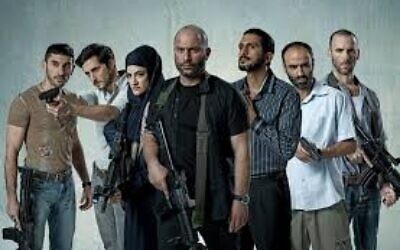Israel, the Promised Land of TV Series
How is a small country producing so many hit TV shows?

How can we explain the success of such a small country producing blockbuster TV series?
The trend is not new but is constantly developing. For 15 years, Israeli TV series have been among the biggest hits of Netflix, Amazon Prime and HBO. One Israeli series out of four is sold abroad.
“Homeland” would not have existed without the Israeli version “Hatufim” (“Prisoners of War”). “BeTipul,” (“In Treatment”), the story of a therapist whose private life is a real disaster, has been a hit in more than 19 countries. “Shtisel,” which describes a family of ultra-Orthodox Jews in a Jerusalem neighborhood, will be adapted for U.S. audiences and transposed to Brooklyn, N.Y.
This recognition comes with a shower of awards. The International Festival Series Mania, the international TV festival in France, awarded its grand prize to Israeli productions three years in a row: “Your Honor” in 2017; “On the Spectrum” in 2018; “Just for Today,” last year.
In its 2019 ranking, The New York Times nominated two Israel series for the top 30 of the decade: “Hatufim” is ranked No. 1 and “Fauda” (Israeli agents infiltrating Hamas) is ranked No. 8.
Let’s try to understand the reasons for this success.
Powerful scenarios
Conflicts make the best scenarios. In Israel, they are at the heart of the country’s existence: Israeli-Palestinian war, opposition between religious and secular people, economic inequalities, racism. “Far from trying to hide or mitigate them, they [screenwriters] take a realistic approach to these tensions,” Jacques Ouaniche, a Franco-Israeli producer, told the AJT.
“They do not hesitate to criticize policies and even to reveal what the people themselves prefer to overlook. ‘Our Boys,’ the latest production by Hagai Levi (creator of ‘In Treatment’) provoked a shockwave.”
The series revisits the tragic events of the summer of 2014, the kidnapping and murder of three Israeli teenagers, followed by the murder of a Palestinian teenager.
“Critics saw it as one of the best series ever produced,” Ouaniche said. “’Our Boys’ allowed an intimate introspection of a whole nation in the face of this drama. Even though [Prime Minister] Benjamin Netanyahu called for a boycott on his Facebook account, this did not set back the broadcast’s directors in charge.”
Stories that speak to everyone
“One thing is certain: Israel is a country of immigrants who know how to tell stories,” Helene Schoumann, jury member of the Jerusalem and Haifa film festivals, told the AJT. “The Jewish nation has had to constantly reinvent itself throughout its history, and that has made it creative. We are storytellers! Moreover, the success is also due to the fact that the Israelis have understood what is expected from a series: drama, war, conflict are at the center of the scripts, together with a personal story focusing on emotions and the intimacy of the characters. For example, look at the difference between ‘Hatufim’ and its American adaptation ‘Homeland.’ When Brody, a Marine held prisoner by Al Qaeda for eight years, comes home [in ‘Homeland], he has barbecues with his neighbors. In ‘Hatufim,’ the prisoners back with their families are detached from reality. ‘Hatufim’ asks real questions: is the long-awaited husband and father who returns still the one we knew, or has he become a stranger to us? ”
Limited budgets
Ouaniche said, “When ‘Taagad’ (‘Charlie Golf One’), the daily life of a Tsahal medical unit, was adapted to the United States, ‘68 Whiskey’ with Ron Howard as a director, a single episode cost three times more than all 40 episodes of the Israeli version!” Easy to believe: an episode of ‘Game of Thrones’ cost $10 million.”
So how do the Israelis do it?
“Low budgets encourage creativity,” explained Danna Stern, director of the Israeli yes Studios. “Writers have nothing to lose and get straight to the point. That’s the way this country works! They use very simple concepts: ‘In Treatment’ is just two people talking to each other in a room. In ‘Shtisel,’ there are countless scenes in the kitchen where father and son meet. And even if you have to aim for adventure, it’s at a lower cost: ‘When Heroes Fly,’ which takes place in Colombia, had a budget of $200,000 per episode!”
However, success starts to have an impact. The biggest budget TV drama series: “Valley of Tears,” which evokes the Yom Kippur War, is currently being filmed and has a budget of $1 million per episode.
This is a great success for a country where television had a very late start and was slowed down by the objections of Prime Minister David Ben Gurion. The first public channel started in May 1968. It was not until November 1996 that a second channel was born.
The 12 best series:
“Florentine” by Eytan Fox, three seasons. The title refers to the Bohemian neighborhood of Tel Aviv where three roommates live. The first season dates back to 1997, but it is interesting to review this series as a chronicle of Tel Aviv urban culture. The show evokes everything that made Tel Aviv what it is today, a city apart in Israel, the carefree youth, the real estate boom, the arrival of African immigrants and gay life, mentioned for the first time on Israeli television.
“BeTipul” by Hagai Levi, Ori Sivan and Nir Bergman, two seasons. Describing the life of a psychotherapist and his relationship with his patients. “BeTipul” enjoyed enormous success in the country where psychoanalysis is a religion. Each episode is kind of like a conversation between the host and the guest, as if they were on a TV talk show. The co-screenwriter Levi likes to say that the idea for “BeTipul” came to him in a gym while he was running on a treadmill. Levi is also a producer of the American version, “In Treatment” with Gabriel Byrne.
“Hatufim” by Gideon Raff, two seasons. “Hatufim” follows the lives of two Israeli soldiers who have just returned home after being held captive for 17 years but are suspected of being the enemy’s secret agents. This series has inspired the

Showtime hit “Homeland.” The strength and depth of “Hatufim” is its capacity to explore the fears and doubts of ordinary men and women who want to resume the courses of their lives, whatever the truths of their past were.
“Hostages” by Omri Givon and Rotem Shamir, two seasons. A female surgeon, who must operate on the prime minister, sees her family taken hostage and threatened with execution if she does not cause the prime minister’s death during the surgery. The U.S. version, which was filmed at the same time as the Israeli version, turned the psychological drama into an uninspired thriller. It had little success in the U.S. The Israeli version, however, is not to be missed.
“False Flag” by Maria Feldman, Leora Kamenetzky and Amit Cohen, two seasons. Five Israelis from very different backgrounds – a teacher, a chemist, a bride-to-be, a kindergartener of Russian descent, a young man from India – wake up one morning to discover their faces all over the news. They are suspected of involvement in the kidnapping of the Iranian defense minister in Moscow. Their lives are suddenly turned upside down. They struggle to prove that they had no connection with the kidnapping, but are they really innocent?
“Mossad 101” by Izhar Harlev, Uri Levron and Daniel Syrkin, two seasons. Taking place on a top-secret army base, the series chronicles the daily life of wannabe soldiers who train to join Mossad, the elite intelligence unit. Even if the series depicts the misery and misadventures they endure, it is sprinkled with a wonderful dose of Israeli humor.
“When Heroes Fly” by Omri Givon, two seasons. Four veterans who served in the second Lebanon War decide 10 years later to fly to Colombia. They set out to find Yaeli, the sister of one and the former girlfriend of another. The success is due not only to the landscapes of the Amazonian forest, but also to the accurate description of the psychological after-effects of those who fought in Lebanon in 2006, like Givon, the director. He stated that he received many thanks from those who found the series therapeutic.
“Our Boys” by producer Hagai Levi and screenwriters Joseph Cedar and Tawfik Abu Wael, one season. The assassination by Hamas of three Israeli teenagers and, in revenge, the murder of a 16-year-old Palestinian killed by three Israeli fanatics, two of whom were minors. The screenplay was written by Levi together with Cedar, an Israeli Jew, and Abu Wael, an Israeli Arab. These events traumatized the country. The creators wanted to return to this tragedy with a question valid in all societies: how to take the time to investigate the facts, prior to incriminating “the other” that we consider the enemy.
“Fauda” by Lior Raz and Avi Issacharoff, three seasons. A special army unit has the mission to infiltrate the population of the Palestinian territories. The characters, who speak fluent Arabic, demonstrate that bilingualism unites people rather than separates. The success is global. Issacharoff, co-author, mentioned that he received a call from a relative of Mohammed Dahlan, former Fatah leader, asking when the third season of “Fauda” will be released. Issacharoff will probably announce a

fourth season, on which the scriptwriters are currently working, and at the same time are finalizing a series inspired by “Sex and the City.”
“Shtisel,” by Ori Elon and Yehonatan Indursky, three seasons. This family saga reveals a great respect for the ultra-Orthodox community, its complexity and its deepest aspirations, whereas this topic is typically portrayed as archaic and narrow-minded. The success of the series is mainly due to the actors. Michael Aloni, the darling face of Israeli cinema, and Dov Glickman, who, for every day of shooting had to spend several hours in makeup and learning Yiddish, a language he has not mastered.

“Autonomies,” by Ori Elon and Yehonatan Indursky, the two creators of the ”Shtisel” series. Let us imagine a near future: Israel is divided in two, and within its borders, one half is an autonomous state living according to the laws of the Torah. “Autonomies” reflects a growing fear in Israel, due to the increasing demographic share of the ultra-Orthodox and its consequences. Will Israelis be able to continue to live together?
“On the Spectrum,” by Dana Idisis and Yuval Shafferman, one season. It is recent (2018) and one of the most original, engaging Israeli series ever done. It deals with the daily life of three, 30-somethings diagnosed with autism – the title refers to autism spectrum disorders – who live together in a therapeutic apartment designed to stimulate their relationships. Looking for love and understanding like everyone else, and finding complications like everyone else, they deal with it all in the most honest and moving way possible.



comments